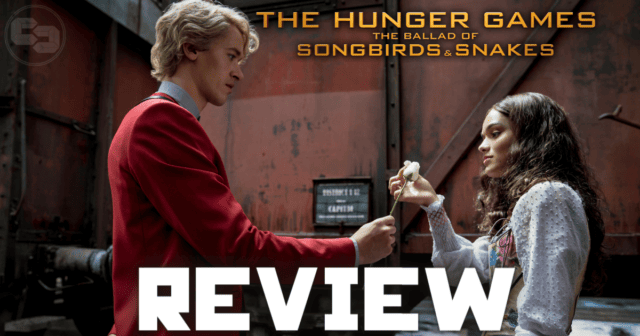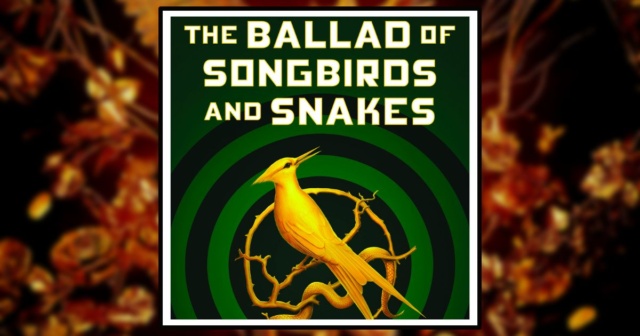Coriolanus Snow’s Journey in ‘Songbirds and Snakes’ Reframes Original ‘Hunger Games’
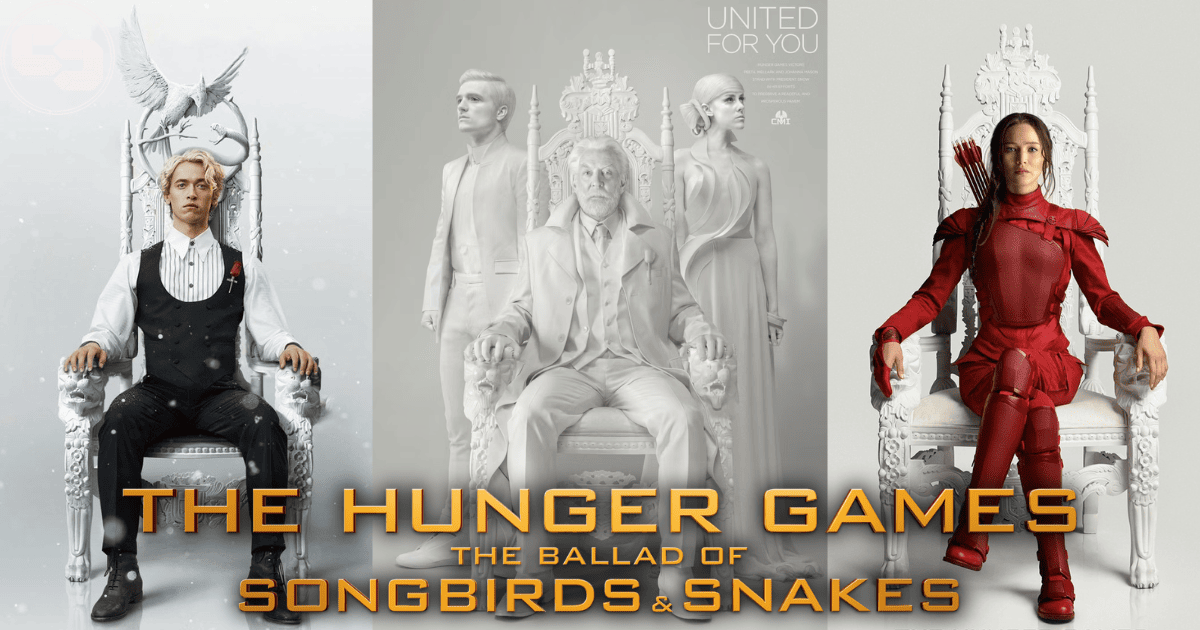
The Hunger Games: The Ballad of Songbirds and Snakes has been released at long last! Fans of the novel have been waiting on the edge of our seats to return to Panem on the silver screen. Lionsgate satisfied us with a solid, if imperfect, adaptation of the story focused on Lucy Gray Baird and Coriolanus Snow. But what we really need to discuss is how Songbirds and Snakes reframes key aspects of the original Hunger Games series, both in print and on film, by virtue of being the rare prequel that only enhances the original with subtle thematic connections.
[Warning: Spoilers ahead for The Ballad of Songbirds and Snakes.]
The Hunger Games require a Victor
I’ve repeatedly said that The Hunger Games movies are, in my opinion, the best adaptations I’ve ever seen. The movies cut only what wouldn’t work on screen and keep the novels’ themes intact to the best of their ability. My issues with the films are usually what they change, not what they remove or add. In fact, scenes created just for the films often improve the overall experience, particularly President Coriolanus Snow’s scenes with Seneca Crane in the very first movie.
These scenes didn’t appear in the book since it was strictly from Katniss’s perspective. They involve Snow and Crane, the head Gamemaker of the 74th Hunger Games, discussing strategy and Katniss’s fiery spark. Snow makes several points here, including mentioning how he’s been out in the districts personally. But what stands out is his argument for why the Hunger Games have a Victor. Coriolanus Snow argues that Victors provide hope, the only thing stronger than fear, and thus are a more effective punishment to control the districts than simple executions.
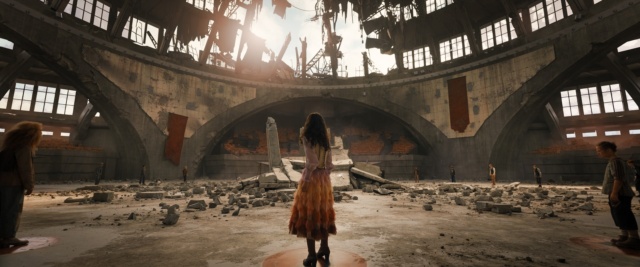
Viola Davis’ Dr. Volumnia Gaul is the first to teach Snow about this point of view in The Ballad of Songbirds and Snakes, asking him why the punishment comes in the form of a game instead of torture or execution. Snow himself brings about significant changes to the Games we see by Katniss’s time, coming up with the ideas for betting and getting the audience personally invested in which tribute wins. His contributions to the Hunger Games turn them into a spectacle and prevent them from dying on the vine.
Interestingly, the Victor conversation is brought up again when Gaul releases her rainbow snake mutts into the arena. Hell-bent on killing every tribute as retribution for the President’s son’s death, Snow must remind her that people will only watch if a Victor is crowned before she allows Lucy Gray to survive. While the action feels out of character for Gaul and is not how she behaved in the novel, this thread carrying from the prequel to the original film adds more depth to our understanding of Coriolanus Snow’s twisted worldview. It offers a perspective that isn’t really explored in the novels.
President Snow’s Victors come back to bite him
In fact, this idea shapes the entire outcome of the 74th Hunger Games. Seneca Crane wanted to have the most shocking finale in history by changing the rules to allow two Victors from the same district, only to revoke the rule when only Katniss and Peeta were left standing. He hoped to force the two lovers into a fatal duel, but they outsmarted him by attempting suicide together, aiming to leave the Hunger Games with no Victor.
Crane allowing Katniss and Peeta to live exposed the Capitol’s fragile hold on society for the first time in decades, as their actions marked the first public defiance of President Snow’s regime perhaps ever. This snowballs into a much larger issue by the time Catching Fire rolls around, with Katniss and Peeta unable to quell the growing unrest during their Victory Tour.
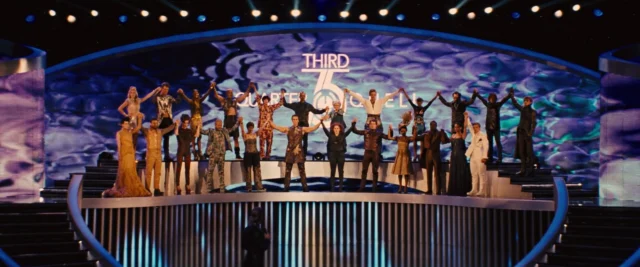
As President Snow says in the film (another perspective absent from the novels), Victors are now giving too much strength to their districts because of Katniss’s actions. Regular citizens believe they can defy the Capitol because a couple of Victors, the most powerful of their population, can stand up to Snow. He wants them dead, but the Victors are a direct consequence of his own actions. Snow thought he was controlling society and keeping Panem under his thumb by revolutionizing the Hunger Games and giving the districts hope, but he planted the seeds for his own downfall by turning the Games into a true reality television event each year.
Without the ideas he introduces during the 10th Hunger Games, Victors would be of no threat to the Capitol. It’s Snow’s suggestions to cause the audience to root for or against tributes, to make them and their districts rich, to turn them into celebrities to Capitol and district citizens alike, that empower them and give them the ability to defy his regime. Without him, Victors would not be in the public eye each year, schmoozing with the Capitol elite and slowly turning into weapons that the rebellion eventually activates against him.
Coriolanus Snow and the Mockingjay
Snow’s contentious relationship with Katniss Everdeen is also deepened by pulling back the layers on his relationship with Lucy Gray Baird, his first and only love. While their conversations are electric and thought-provoking in the novels and films, The Ballad of Songbirds and Snakes reveals so much more about Snow and how personal Katniss was to him because of Lucy Gray.
Of course, there’s the obvious parallel of Snow mentoring the girl tribute from District 12 only for one to take him down many years later. We know Lucy Gray is long forgotten by Katniss’s time. There’s a fleeting mention of a dead Victor from 12 in the first Hunger Games novel, but Gaul and Snow were clearly successful at scrubbing Lucy Gray Baird from Panem’s history. However, Lucy Gray haunts Coriolanus Snow for the rest of his life, living on not only through the songs Katniss sings, but also through symbols of the rebellion that taunt President Snow.
First, there’s the mockingjays and the katniss plant itself. Lucy Gray liked to dig up katniss by the lakeside. This is the kind of subtle connection back to Katniss Everdeen that makes perfect sense but doesn’t make a reader (or viewer) groan with forced nostalgia. Mockingjays are a much bigger personal affront to Snow, as we discover his hatred for the mutant birds in the prequel.
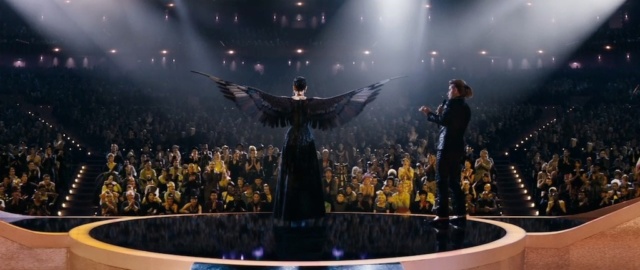
Snow hates mockingjays because they’re not supposed to exist, thriving in a place where the Capitol sent their jabberjays to die. This directly mirrors Katniss, who becomes the symbol of the rebellion and known as The Mockingjay to all of Panem despite being sent to her death in the arena. But a young Coriolanus Snow also hates the taunting singing of the mockingjays after Lucy Gray abandons him in the woods. Suddenly, Katniss and the mockingjays singing one of Lucy Gray’s songs in the arena to a dying Rue becomes a personal, haunting moment for President Snow. It’s a moment that runs much deeper than hating a random tribute’s attempt to give their ally a peaceful death in his game.
The same goes for Snow complimenting Katniss’s mockingjay pin in the film, with her unable to know his own relationship with that symbol. It also adds a personal layer to his decision to kill Cinna for his mockingjay-inspired interview dress in Catching Fire, and recontextualizes Snow’s hatred of Katniss. He’s not just mad because a teenage girl has incited rebellion. Snow is haunted by Lucy Gray, who comes alive 64 years after her disappearance in the form of Katniss’ mockingjay.
Snow’s history with District 12
But it’s not only the mockingjays that add new depth to Snow and Katniss’s enmity. “The Hanging Tree” becomes a song of rebellion, featured in propaganda clips shown even in the Capitol itself and sung by rebels as they march on his troops in Mockingjay – Part 1. The song means something to Katniss because her father used to sing it to her as a child, but the song’s deeper meaning to President Snow changes how we see it.
Snow was present at the hanging mentioned in “The Hanging Tree”. Lucy Gray’s only performance of the song was a direct message to Snow, letting him know where to meet her in the Ballad of Songbirds and Snakes novel. This is one example of how Snow’s time in District 12 reveals that he touched Katniss’s life in a deeper way than she’ll ever know, far beyond his autocratic control that defined the life of every Panem citizen. “The Hanging Tree” is a song specifically addressed to Coriolanus Snow, a message to him written by Lucy Gray, dressed up as a narrative from a dead man to his lover.
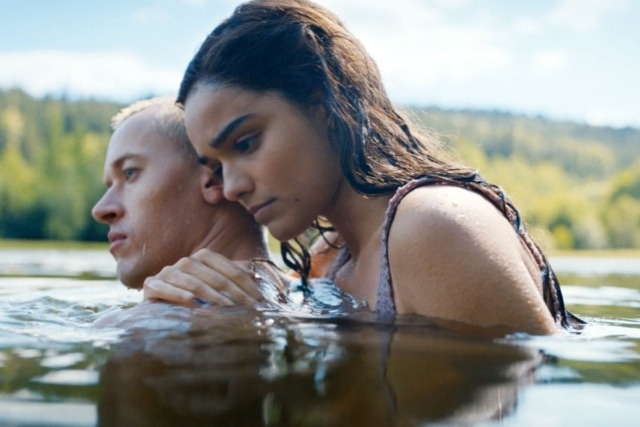
The deeper connection between Katniss and Snow comes in the lake deep into the woods of District 12. Briefly glimpsed in the Catching Fire movie, the lake factors more heavily into the novel. It’s where Katniss learned to swim with her father and spent many happy days. It’s one of her only safe spaces in all of District 12 besides the house she grew up in.
The Ballad of Songbirds and Snakes reveals that Coriolanus Snow has a personal history with the lake as well. It’s where he solidified into the dictator he was by the time Katniss met him, playing a pivotal role in his descent into cruelty. The lake is where Snow crossed the line between good and bad mentioned by Lucy Gray, discovering the guns that could implicate him in Mayfair’s murder and choosing ambition and power over love.
The lake is where the stories of the only two female District 12 Victors converge, with Lucy Gray escaping Snow’s grasp decades before Katniss visits the lake as an escape from the grasp of President Snow’s regime. Knowing Snow’s history with the lake taints Katniss’s memories there, at least for the reader. She sees the lake as the only place where she can let her guard down and be herself, away from the cameras and Snow’s watchful eye, but she’s unknowingly swimming over the evidence that almost prevented Snow from taking power to begin with.
President Snow’s history enriches Katniss’s story
The revelations in The Ballad of Songbirds and Snakes subtly change the way we view Katniss’s story. Her symbol, her actions, the entire circumstance of her rise to power have become much more personal to Snow than we ever realized. To me, this is the mark of an excellent prequel. It doesn’t rely too heavily on the original and it doesn’t force connections to the original novels by drawing eye-rolling connections to what we already know. Instead, it offers subtle and concise connections to Katniss’s journey that only enrich her story.
Without Coriolanus Snow, the Hunger Games would have died out after the fiasco of the 10th Games. Toned down for the movie, the Games are a much bigger disaster in the novel with more Capitol students and tributes alike dying before anyone even enters the arena. His ideas to change the Games and his actions in District 12 impact Katniss heavily but not in an overwhelming way. Learning more about Snow’s past only makes the already excellent Hunger Games franchise even more engaging, a rare feat considering the state of franchises nowadays.
The Ballad of Songbirds and Snakes releases in theaters now! Are you excited to revisit the world and story of The Hunger Games soon? Let us know on social media @mycosmiccircus or in The Cosmic Circus Discord.
Review: The Hunger Games: The Ballad of Songbirds and Snakes Deepens the World of Panem
Book Review: The Ballad of Songbirds and Snakes by Suzanne Collins

